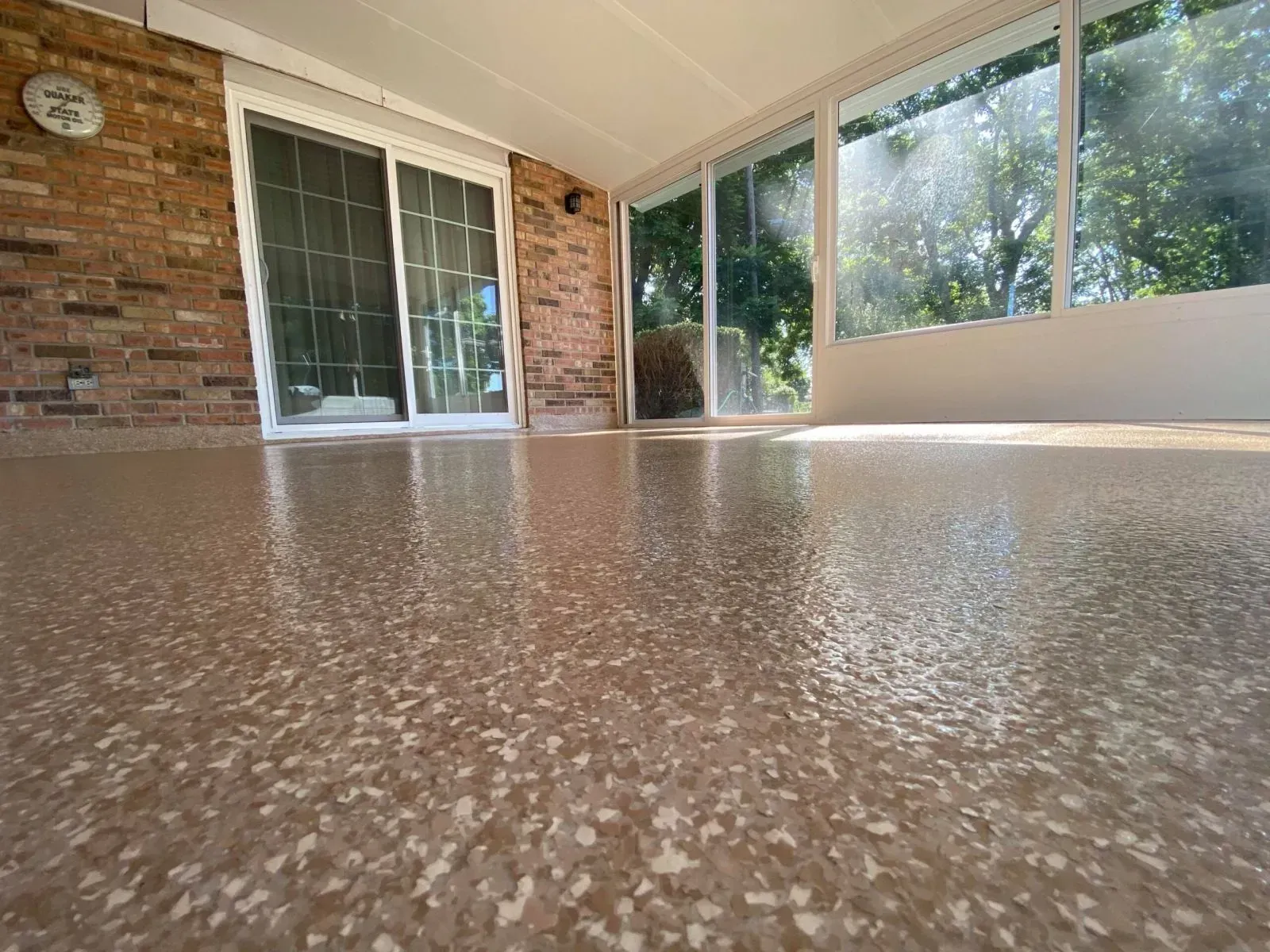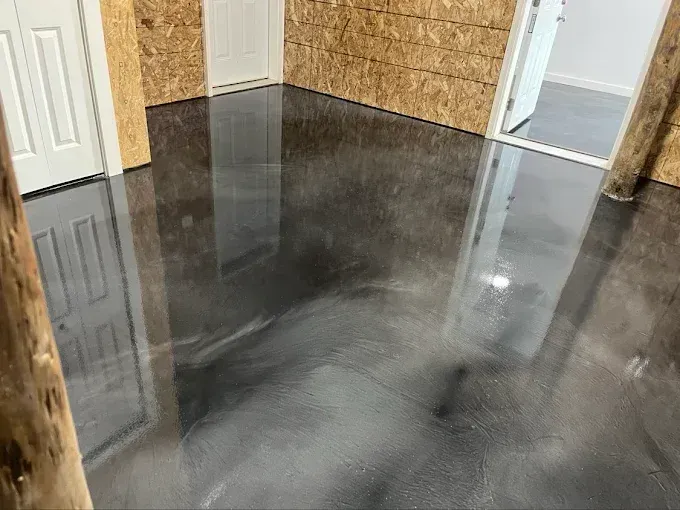Why Concrete Sealing is a Smart Investment for Earth Month
Concrete sealing might not seem like the obvious choice for an Earth Month upgrade, but it plays a bigger role in sustainability than most people realize. Well-maintained concrete lasts longer, reduces waste, and supports a cleaner, healthier home environment.
Here’s how sealing your concrete contributes to both environmental responsibility and long-term value.
1. Extends the Life of Existing Concrete
Concrete production has a large carbon footprint due to the energy required to mine, mix, and transport raw materials. Replacing damaged slabs means tearing out old material, hauling debris to a landfill, and pouring new concrete, all of which add to environmental impact. Sealing helps protect what you already have by resisting damage from moisture, freeze-thaw cycles, deicers, and UV exposure. The longer your surfaces last, the less waste you generate over time.
2. Reduces Water Intrusion and Mold Growth
Unsealed concrete acts like a sponge. In basements and outdoor areas, water can seep into the pores and lead to mold, mildew, and humidity issues, especially in humid climates or areas prone to heavy rain. Sealed concrete helps control moisture intrusion, which supports better indoor air quality and reduces the need for harsh chemical cleaners and mold remediation down the line.
3. Lowers Maintenance Requirements
A sealed surface is easier to clean and maintain. Dirt, oil, salt, and stains stay on the surface rather than penetrating deep into the concrete. That means fewer harsh detergents and less frequent pressure washing and results in saving water, cleaning products, and your time. Over years of use, this small change can make a noticeable difference.
4. Prevents Premature Repairs and Replacements
Frequent repairs require materials, labor, and energy. They also disrupt your space and can lead to downtime if you rely on those surfaces for daily use. Sealing slows down wear, helping to minimize the frequency and intensity of patching or full resurfacing projects. In other words, it’s a one-time step that reduces the need for repeat interventions.
5. Protects Decorative Concrete and Coatings
Stamped, stained, or coated concrete adds aesthetic value but needs protection to keep looking its best. A proper sealer locks in the color, prevents fading, and shields against chemical erosion. Protecting those finishes reduces the chance that homeowners will tear them out early or cover them with something less sustainable like tile or synthetic flooring.
Small Steps That Add Up
Choosing to seal your concrete might not make headlines, but it’s one of those practical, behind-the-scenes decisions that pays off for years. For Earth Month, it’s a reminder that sustainability often begins with protecting what you already own.
GatorGuard helps you make those smart decisions easier , offering long-lasting solutions that support both your home and the planet.
Ready to extend the life of your concrete and reduce environmental waste? Book a free consultation today and talk with a GatorGuard pro about the right sealing solution for your space.
Frequently Asked Questions About Concrete Sealing and Sustainability
Is concrete sealing considered environmentally friendly?
While sealing itself uses materials, the overall impact is positive. Sealing extends the life of concrete surfaces, which reduces the need for demolition, landfill waste, and energy-intensive replacement. Less maintenance and fewer harsh cleaners also support environmentally responsible home care.
Are the products used for sealing safe for my home or garden?
GatorGuard uses professional-grade products designed for long-term performance and minimal impact. Our application process includes surface preparation that minimizes airborne dust and runoff. We work with you to choose the right solution, especially if the surface is near plants, pets, or living spaces.
What areas of my property benefit the most from sealing?
Driveways, patios, garage floors, basements, pool decks, and walkways all benefit from proper sealing. These areas are exposed to moisture, chemicals, and temperature swings. Sealing helps preserve them and cut down on ongoing maintenance.
Does sealing concrete help with indoor air quality?
Yes. Sealing basement or garage floors helps reduce concrete dust and moisture intrusion—two major contributors to poor indoor air quality. A properly sealed surface helps maintain a cleaner, drier environment, especially in enclosed or semi-finished spaces.
Can sealing reduce my home’s energy use?
Indirectly, yes. Keeping moisture out of your basement reduces humidity levels, which means your dehumidifier or HVAC system doesn’t have to work as hard. This creates a more energy-efficient environment and helps control utility costs.
The post Why Concrete Sealing is a Smart Investment for Earth Month appeared first on GatorGuard.





